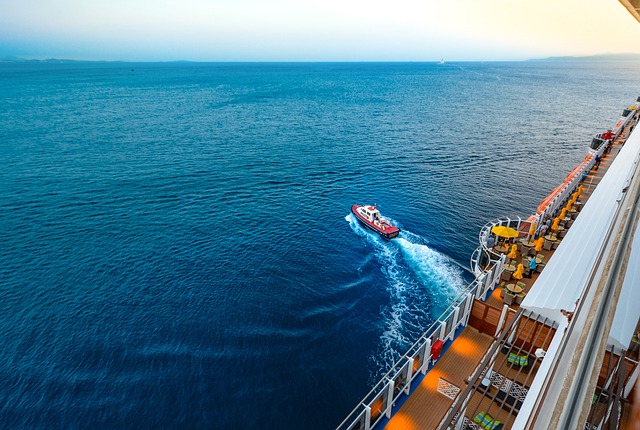-
The Philippine Ports Authority is eyeing an update on its 38-year-old policy on harbor pilots and pilotage services
-
Under the proposal, the service of harbor pilots remains compulsory for both international and domestic vessels
-
Harbor pilots will not be required to be a member of a pilotage association as long as they can provide their own equipment and resources
-
The proposed AO introduces a new provision barring harbor pilots from engaging in activities conflicting with their pilotage services, such as providing tug boat services for seaport pilotage
-
Stakeholders have until December 1 to submit their position papers on the proposed order
The Philippine Ports Authority (PPA) is proposing to update its 38-year-old policy on harbor pilots and pilotage services.
During the public hearing on a proposed administrative order (AO) on November 23, PPA Marine Services Division manager Rey Del Moro, Jr. said the PPA Board, in a meeting last June 25, agreed to amend regulations governing pilotage currently covered by PPA AO 03-85.
The goal is to address stakeholder concerns and align with new laws, including the Amended Public Service Act and Philippine Competition Act.
The proposed order applies to all vessels over 100 gross tonnages in government and private seaports under PPA’s control. Harbor pilots, licensed by MARINA and appointed by PPA, must provide compulsory services for international and domestic vessels.
Compulsory pilotage is required for entering harbors, anchoring, navigating rivers or straits, docking, undocking, and shifting between berths in government or private ports under PPA’s jurisdiction. Unlike AO 03-85, there are no exemptions to compulsory pilotage in the proposed AO.
Two types of pilotage services are being introduced: regular and special. Regular services involve maneuvering vessels within the pilotage district, while special services, not part of regular pilotage, can be requested by the vessel’s master.
Harbor pilot candidates must meet legal professional standards and be physically fit, especially during storms. The age limit for applicants is now 55, except for those holding regular appointments in another pilotage district, a change from the previous requirement of not more than 60 under AO 03-85.
Similar to AO 03-85, candidates in the proposed AO must be Filipino citizens, physically and mentally fit, of good moral character, and licensed harbor pilots for the specific district by MARINA.
Under the proposed AO, PPA will issue two types of appointments for qualified harbor pilots: probationary and regular. All harbor pilots must provide a P1-million indemnity bond to cover potential liabilities from accidents during pilotage duties. This insurance is effective from the pilot’s assumption of duties until retirement or the end of their service, a shift from AO 03-85, where the pilot association was responsible for collective insurance.
The proposed AO also lowers the compulsory retirement age for harbor pilots to 62 from the current 70 under AO 03-85.
PPA, during the public hearing, emphasized said the change has been thoroughly discussed with stakeholders. Those questioning the policy were invited to submit their positions to PPA for consideration.
Unlike AO 03-85, harbor pilots are now responsible for their equipment, removing the previous requirement for the pilot association to provide them. Equipment includes a pilot boat, communication tools, a toolkit, and personal protective gear.
During the public hearing, PPA said harbor pilots don’t have to join an association if they can supply their own equipment although they are encouraged to form associations to pool resources for effective service provision.
The harbor pilot is accountable for any damage caused due to negligence during pilotage services. The vessel’s master retains command authority, able to countermand or overrule the harbor pilot’s commands even during pilotage.
The proposed AO introduces a new provision barring harbor pilots from engaging in activities conflicting with their pilotage services, such as providing tug boat services for seaport pilotage.
The proposed AO removes limitations on the number of appointed harbor pilots per district, as per PPA Memorandum Order 020-2023, allowing flexibility based on port needs. The PPA general manager, with the port manager’s recommendation, may adjust the number of harbor pilots as required.
Vessels using harbor pilot services must adhere to prescribed pilotage fees and conditions under the proposed AO, following the “No Service, No Pay” principle.
Shipping lines will be directly billed for PPA’s 10% government share, a change from AO 03-85 where the share was remitted by the pilotage association.
Stakeholders have until December 1 to submit their position papers on the proposed AO.
In compliance with Republic Act 11032 (Ease of Doing Business and Efficient Government Service Delivery Act of 2018), the proposed AO will undergo review by the Anti-Red Tape Authority, with the regulatory notification form submitted to ARTA in October. The regulatory impact statement is in progress. – Roumina Pablo





